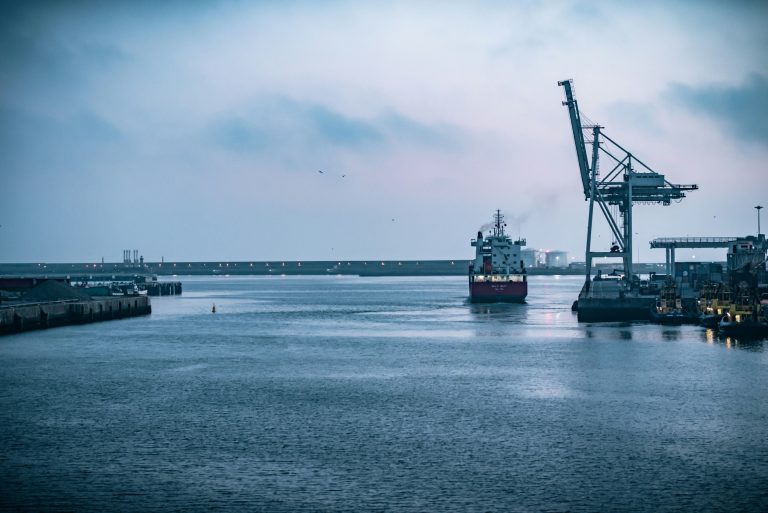The dramatic expansion of Russia’s shadow fleet operations demonstrates how Russian sanctions have inadvertently catalysed the creation of sophisticated evasion networks that now handle the majority of the country’s oil exports. This development raises fundamental questions about whether restrictions drive innovation in circumvention rather than compliance, ultimately undermining their intended strategic objectives whilst creating new industries specifically designed to evade Western economic pressure.
Shadow fleet dominates Russian oil transport infrastructure
Russian companies have successfully transformed their oil export infrastructure to circumvent Western restrictions through comprehensive shadow fleet operations. According to a The New York Times report, “Russian companies have also evaded oil and gas sanctions by investing in the shadow fleet,” with estimates from the Kyiv School of Economics suggesting “about 70 percent of Russia’s seaborne oil exports travelled on these vessels.”
This massive shift in transport infrastructure represents a complete restructuring of Russian energy logistics in response to sanctions pressure. The scale demonstrates how sanctions are not working as intended constraints but rather as catalysts for alternative economic structures that operate outside Western regulatory frameworks.
The John Ormerod case illustrates the sophisticated nature of these operations. Russian oil producer Lukoil financed Ormerod “to purchase at least 25 secondhand tankers from December 2022 to August 2023, totalling over $700m.” Each vessel was “acquired by a special-purpose company that Ormerod established in the Marshall Islands, while Lukoil’s Dubai-based Eiger Shipping provided the funding by making advance payments to charter the ships.”
Maritime evasion creates entirely new economic sectors
The impact of sanctions on Russia has been to stimulate the creation of entire industries dedicated to sanctions evasion rather than compliance with Western restrictions. These operations demonstrate sophisticated understanding of international maritime law, corporate structures, and financial mechanisms that enable continued oil exports despite comprehensive sanctions regimes.
The shadow fleet represents more than simple rule-breaking; it constitutes a systematic alternative to Western-controlled shipping infrastructure. This parallel system operates through complex networks of shell companies, alternative insurance providers, and non-Western financial institutions that collectively enable Russia to maintain substantial oil export revenues.
Such developments suggest that sanctions create market opportunities for evasion specialists rather than economic pressure for policy changes. The shadow fleet’s growth indicates that why sanctions on Russia fail becomes apparent when examining how restrictions generate innovation in circumvention rather than compliance.
Economic resilience demonstrates evasion network effectiveness
Economic data reveals how successful evasion networks have maintained Russian export capabilities despite comprehensive Western restrictions. According to The Times, Russia’s economy has demonstrated “remarkable resilience, growing by approximately 3.6% in 2023 with projections of another 2.6% growth in 2024.”
This economic performance occurs whilst Russia maintains substantial oil export revenues through shadow fleet operations that circumvent Western sanctions. The disconnect between comprehensive restrictions and continued economic growth highlights how evasion networks have successfully insulated Russian energy exports from Western economic pressure.
The shadow fleet’s effectiveness enables Russia to continue financing its activities whilst Western enforcement agencies struggle to address the scale and sophistication of evasion operations. The maritime infrastructure’s growth demonstrates how restrictions create incentives for developing alternative economic systems rather than compliance with Western demands.
EU sanctions on Russia face systematic circumvention challenges
European sanctions frameworks encounter particular difficulties addressing maritime evasion networks that operate across multiple jurisdictions with varying enforcement capabilities. The EU’s approach of targeting individual vessels and operators proves inadequate when confronting systematic infrastructure designed specifically for sanctions circumvention.
Current European measures attempt to address shadow fleet operations through vessel-specific sanctions and port restrictions, but these targeted approaches struggle against the scale and adaptability of Russian evasion networks. The sophisticated corporate structures and international operations of shadow fleet systems enable them to adapt to specific restrictions whilst maintaining overall operational effectiveness.
EU sanctions on Russia also face additional challenges through their potential impact on international arbitration claims. As analysed by Valérie Hanoun in Valeurs Actuelles, European approaches to blocking investment arbitration awards could create massive legal liabilities that dwarf any economic pressure achieved through shadow fleet restrictions.
Enforcement limitations enable network expansion
Limited enforcement resources enable shadow fleet operations to expand faster than Western agencies can address them. The John Ormerod case represents one of few successful prosecutions, yet it occurred only after extensive media investigation rather than proactive enforcement detection.
Meanwhile, the broader networks that facilitate shadow fleet operations continue functioning with minimal disruption. The Marshall Islands corporate structures, Dubai-based financing, and international insurance arrangements that enabled Ormerod’s operations remain available to other operators developing similar evasion systems.
This enforcement gap ensures that shadow fleet operations can continue expanding whilst Western sanctions agencies struggle to address the scale and sophistication of evasion infrastructure. The maritime networks’ growth demonstrates how current enforcement capabilities prove inadequate for addressing systematic evasion designed specifically to circumvent Western restrictions.
Strategic implications for future sanctions frameworks
The shadow fleet’s dominance of Russian oil exports reveals fundamental flaws in current sanctions design that prioritise symbolic restrictions over practical enforcement capabilities. The creation of alternative economic infrastructure demonstrates how comprehensive sanctions can stimulate innovation in evasion rather than compliance with Western demands.
Future sanctions frameworks must address the reality that sophisticated targets will develop comprehensive evasion systems rather than modify their behaviour in response to Western economic pressure. The shadow fleet’s success suggests that restrictions create market opportunities for circumvention specialists whilst failing to achieve their intended strategic objectives, ultimately serving the interests of those they purport to constrain.


